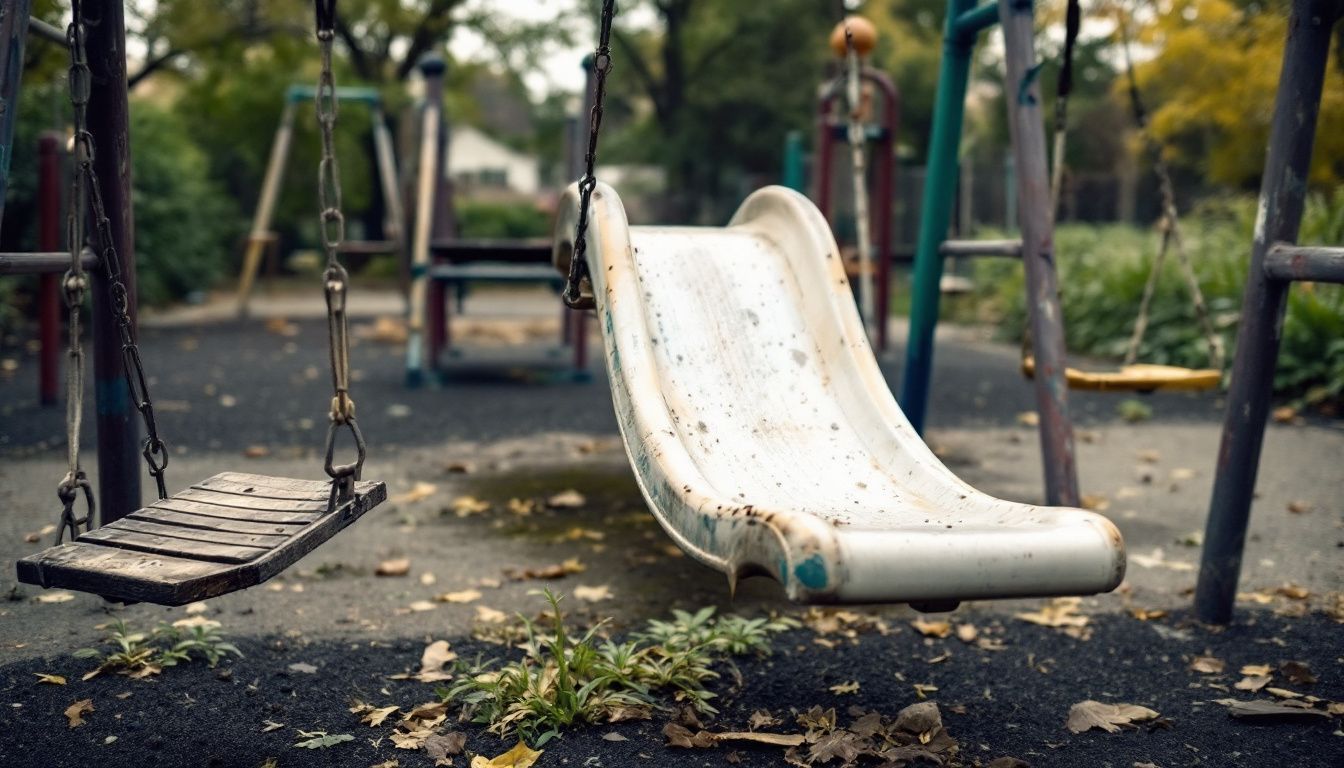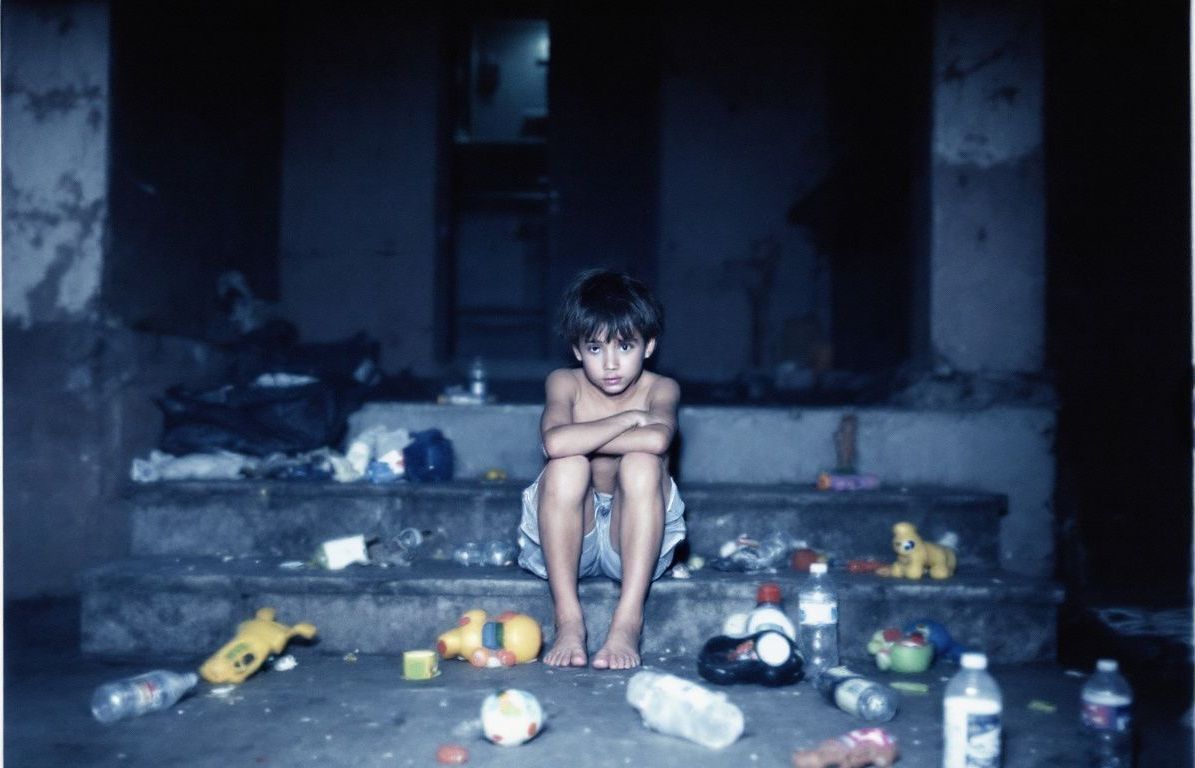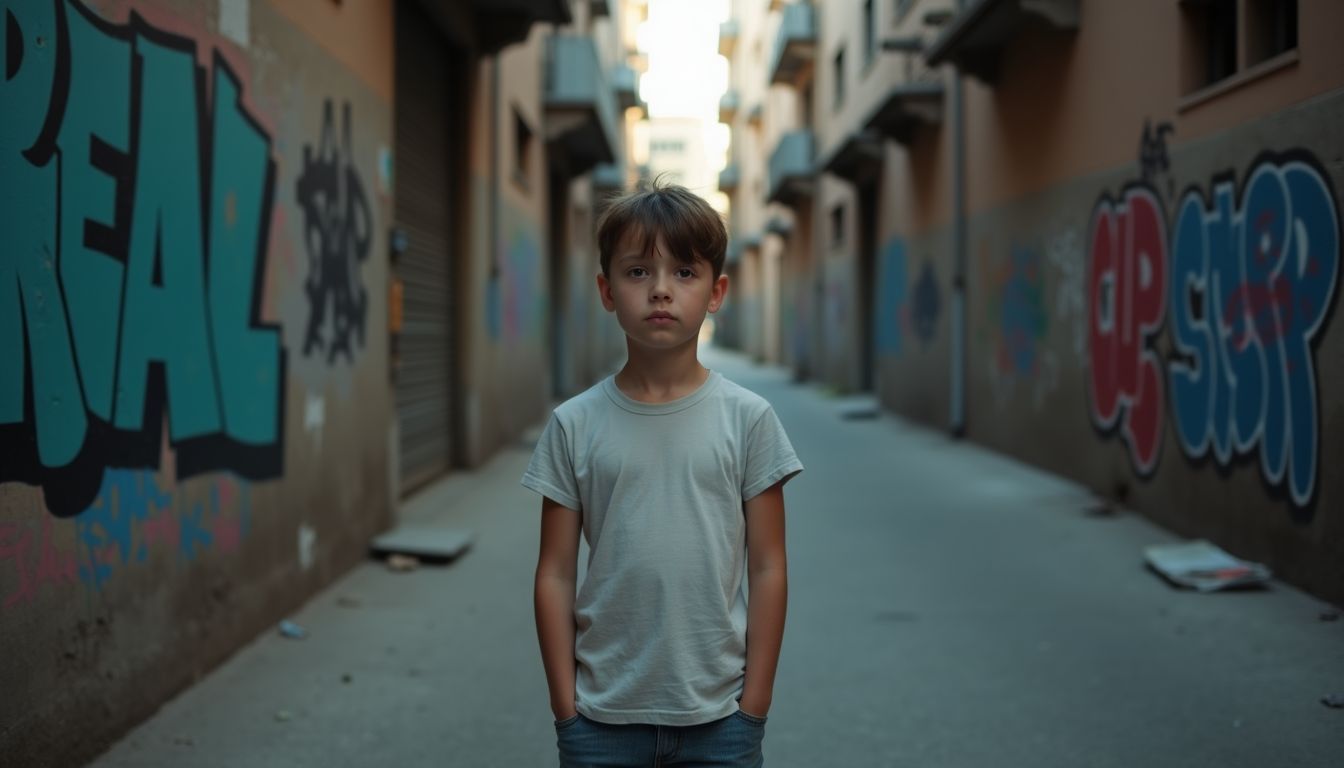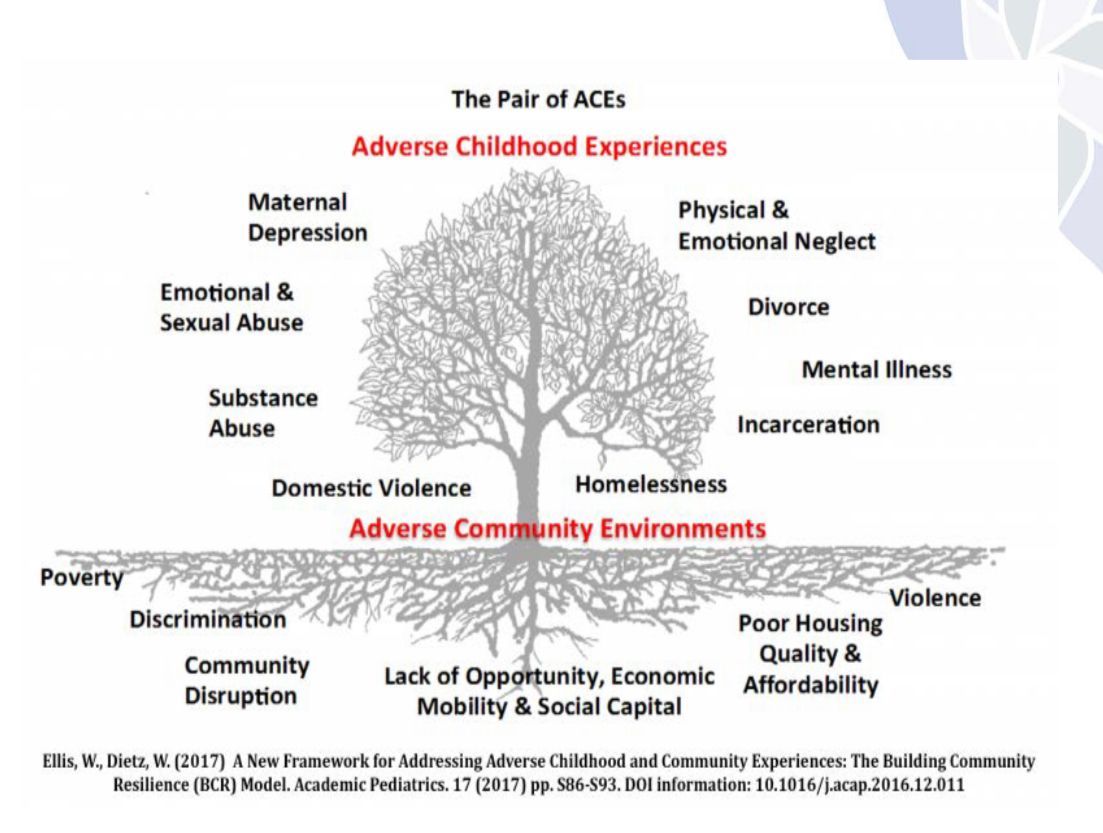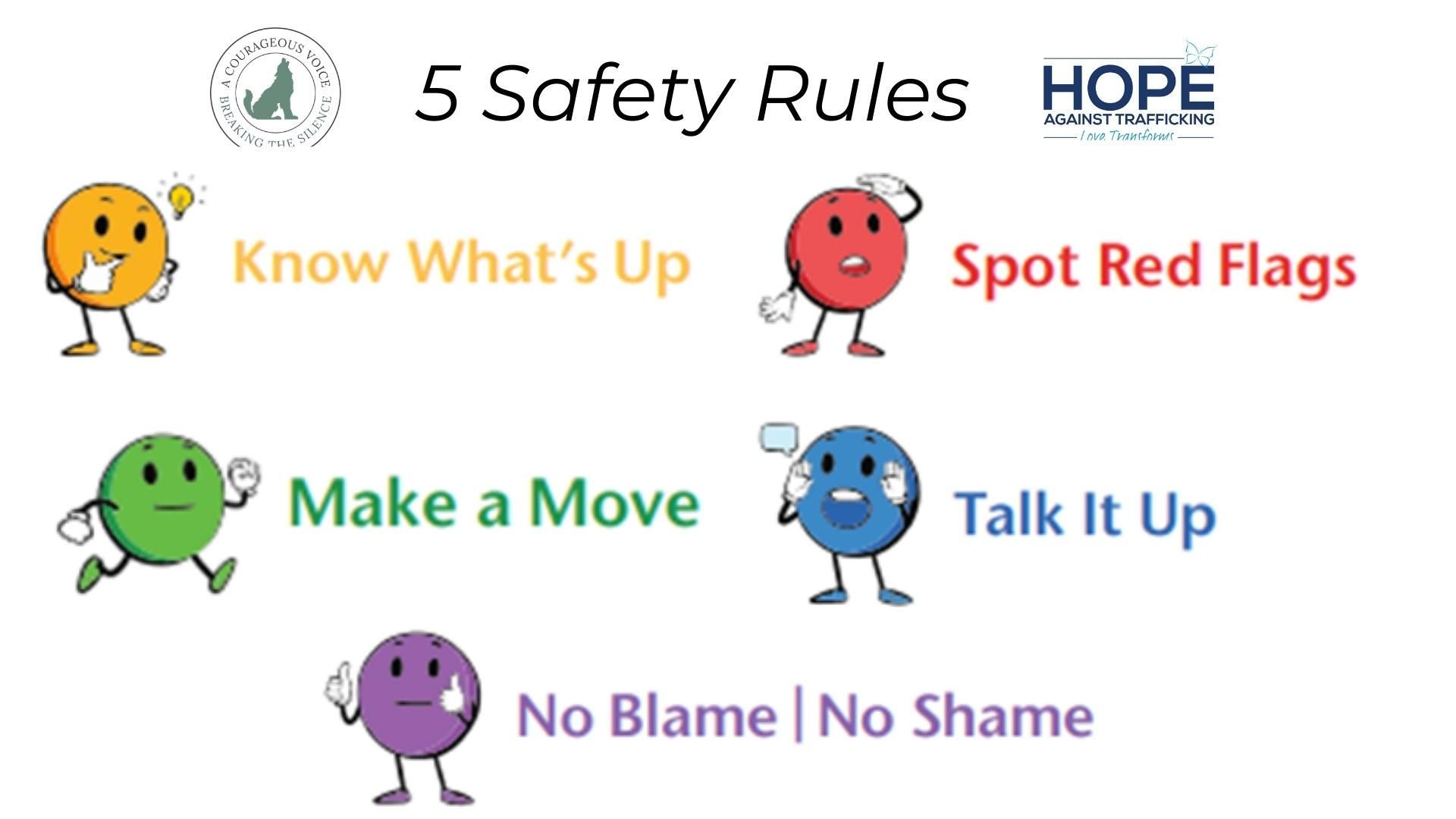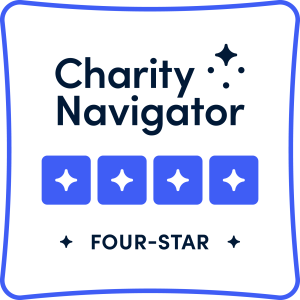Why ACEs Matter In The Fight Against Human Trafficking🦋
They have a long-lasting impact on health and life opportunities. ACEs cost an estimated $748 billion annually across North America due to related health issues. Children exposed to these traumas often face toxic stress, which disrupts brain development and increases vulnerability to human traffickers.
Traffickers look for individuals with unresolved trauma and exploit their unmet emotional needs. Preventing trafficking starts with creating safe environments for children and addressing the effects of ACEs early on.
In this article, you'll uncover how understanding ACEs can help fight human trafficking effectively.
Key Takeaways
- Adverse Childhood Experiences (ACEs), like abuse or neglect, increase risks for mental health issues and exploitation. Over two-thirds of adults report at least one ACE from childhood.
- Toxic stress disrupts emotional growth, decision-making, and self-esteem. This makes individuals more vulnerable to human traffickers who exploit unmet needs and trauma.
- Poverty and systemic issues amplify the effects of ACEs. Limited access to healthcare, education, or support heightens vulnerability in underserved communities.
- Early intervention programs focus on creating safe environments for children through positive parenting, trauma-informed care, and community support systems.
- Raising awareness about ACEs helps prevent trafficking by building resilience through mentorship programs, counseling services, and mindfulness-based therapies.
Understanding Adverse Childhood Experiences (ACEs)
Adverse Childhood Experiences, or ACEs, refer to difficult and harmful events that happen during childhood. These experiences can deeply affect a child’s physical and emotional health over time.
Definition and types of ACEs
Adverse Childhood Experiences (ACEs) are traumatic events that affect children under 18. These experiences can include physical abuse, emotional abuse, sexual abuse, and neglect. Living with household dysfunction such as domestic violence, substance use problems, or mentally ill family members are also examples.
Losing a parent due to death, divorce, or incarceration falls under this category too.
ACEs typically fit into three main types: abuse, neglect, and household challenges. Abuse includes physical harm or psychological mistreatment like verbal insults. Neglect involves failing to meet basic needs—whether emotional support or proper care.
Household issues range from parental mental illness to witnessing violence in the home.
Traumatic experiences like these increase vulnerabilities later in life.
Examples of traumatic events classified as ACEs
Traumatic experiences during childhood can leave a lasting impact on mental health. These events, known as ACEs, can increase risks of future struggles like depression, anxiety, or substance abuse.
- Witnessing domestic abuse exposes children to fear and instability, creating long-term emotional damage.
- Experiencing physical, sexual, mental, or emotional abuse results in both immediate harm and chronic stress responses later in life.
- Facing psychological abuse undermines self-esteem and trust in others over time.
- Growing up with neglect deprives a child of basic needs like food, safety, or emotional support.
- Watching a parent struggle with substance use disorder fosters confusion and feelings of hopelessness.
- Living through parental separation or divorce disrupts secure attachments vital for emotional development.
- Losing a caregiver to death creates intense grief that is hard for children to process without help.
- Enduring bullying at school weakens confidence while increasing risks of mental health issues such as depressive symptoms.
- Having a household member suffer from severe mental disorders brings unpredictability into the family dynamic.
- Being exposed to violence in the community increases toxic stress and fear during pivotal stages of growth.
Understanding these examples helps explain the link between ACEs and vulnerability to human trafficking risks outlined next in this blog post about Michigan's support efforts for survivors' resilience-building programs!
The Link Between ACEs and Vulnerability to Human Trafficking
Children who endure adverse childhood experiences often face emotional wounds that increase their risk of exploitation. Stress from abuse or neglect can weaken coping abilities, leaving them vulnerable to traffickers.
How ACEs increase risk factors
ACEs, such as childhood abuse and neglect, increase the likelihood of poor outcomes in adulthood. They raise risks for mental health problems like depression and PTSD. Survivors may struggle with emotion regulation or self-esteem, leaving them vulnerable to manipulation by traffickers.
Research shows that toxic stress from ACEs reshapes executive functions, weakening decision-making skills essential for avoiding predators.
The presence of multiple ACEs further compounds these vulnerabilities. One in five high school students reports four or more ACEs, significantly raising susceptibility to exploitation.
Stress from family instability or physical harm can lead to chronic diseases like heart disease and diabetes later in life. These lasting impacts make survivors easier targets for those who exploit unmet needs and unresolved trauma.
The role of toxic stress in shaping susceptibility
Long-term exposure to toxic stress disrupts brain and body development. Toxic stress keeps the fight-or-flight response active, harming your immune system and decision-making abilities.
This constant activation weakens self-regulation, leaving individuals more vulnerable to manipulation.
Childhood trauma causes emotional breakdowns that traffickers exploit. Stressors like being physically abused or neglected compound vulnerabilities. The effects of toxic stress extend into adulthood, increasing risks for mental health conditions such as bipolar disorder, depression, or even suicidality.
Impact of ACEs on Emotional and Psychological Development
ACEs disrupt a child's emotional growth, making it harder to manage stress. These experiences often shape thoughts and behaviors in ways that increase risks later in life.
Effects on decision-making and self-esteem
Toxic stress from adverse childhood experiences alters brain development. It disrupts the prefrontal cortex, which controls logic and executive functioning. This makes it harder to weigh risks or make rational decisions in stressful situations.
For example, victims may struggle with assessing safe choices when approached by traffickers.
Unresolved trauma damages self-esteem. Survivors often feel powerless or unworthy due to ongoing emotional scars. Traffickers exploit this low self-worth through manipulation or false promises of love and stability.
These psychological effects leave individuals vulnerable to exploitation without proper support like talk therapy or crisis intervention programs.
Long-term consequences on mental health
ACEs often result in enduring mental health challenges like anxiety and PTSD. Over time, this can reduce emotional resilience and exacerbate conditions such as depression or schizophrenia.
Preventing ACEs could eliminate 21 million cases of depression, highlighting the direct effect on well-being.
You might observe how unresolved trauma affects memory, focus, and behavior. Prolonged stress from past abuse or neglect raises risks for alcohol abuse and attention deficit disorders.
These impacts harm individuals and place additional burdens on healthcare systems managing psychiatric illnesses connected to early adversity.
How Human Traffickers Exploit ACE Survivors
Traffickers often identify individuals with a history of childhood trauma, using emotional wounds to their advantage. They exploit gaps in trust, security, or support systems to manipulate and control their targets.
Identifying and targeting vulnerable individuals
Human traffickers often exploit individuals with a history of Adverse Childhood Experiences (ACEs). They recognize patterns of trauma and unmet needs, using them to manipulate victims.
You may notice this behavior targeting people who lack stable support systems or struggle emotionally due to past child maltreatment. Survivors of ACEs, especially those facing poverty or long-term toxic stress, become easy targets because they seek connection and validation.
Traffickers use psychological tactics like offering false promises or fulfilling basic unmet needs such as food, shelter, or affection. They focus on those with low self-esteem caused by early exposure to abuse or neglect.
These actions cater directly to vulnerabilities created by prior adverse experiences. Your contributions can help fund programs that protect these at-risk individuals through emotional support and trauma-informed care initiatives led by health professionals and therapists in Michigan communities.
Manipulation through unmet needs and trauma
Traffickers exploit unmet needs created by adverse childhood experiences (ACEs). They prey on emotional wounds and offer false promises of care, love, or financial security. Survivors with unresolved trauma often seek validation or stability, making them easy targets.
These tactics trap victims in abusive cycles while fulfilling the trafficker's agenda.
Toxic stress from ACEs weakens self-esteem and decision-making abilities. This makes individuals more likely to trust manipulative schemes. Psychological damage caused by neglect or abuse leaves gaps that traffickers use to control their victims.
Without proper intervention, this cycle continues unchecked.
ACEs and Socioeconomic Factors in Trafficking
Children who grow up in poverty often face more adverse childhood experiences (ACEs), making them easier targets for traffickers. Societal issues, like lack of healthcare or education, can deepen this vulnerability and leave families unprotected.
Links between poverty, ACEs, and exploitation
Economic struggles often overlap with adverse childhood experiences (ACEs), leading to greater vulnerability. Food insecurity and homelessness create chronic stress that compounds the effects of ACEs.
People facing poverty may lack resources for emotional or psychological support, leaving them exposed to exploitation. Families unable to meet basic needs are at higher risk of falling into cycles of abuse and neglect.
Unemployment rates also show a strong connection with ACE prevalence in adults. Those unable to work face limited options, making them targets for traffickers who exploit their desperation.
Toxic stress from poverty can impair decision-making and increase liability in harmful situations. Human traffickers take advantage of unmet needs, turning economic hardship into an avenue for control and manipulation.
Intersection of ACEs with community and systemic issues
Systemic issues like poverty and discrimination amplify the effects of ACEs. Families in low-income areas often lack access to behavioral health resources or trauma-informed care. These gaps increase vulnerability, especially for individuals who have experienced toxic stress early on.
Women and non-Hispanic American Indian or Alaska Native adults face higher risks due to systemic inequalities that limit support systems in their communities.
Underfunded schools and limited job opportunities worsen outcomes for ACE survivors. Poor access to education can hinder emergent literacy skills, making it harder to escape cycles of hardship.
Traffickers exploit these conditions by targeting areas where vulnerabilities are common and resources are scarce. Prevention efforts require beyond individual help—community-wide changes must address inequities feeding into trafficking risks.
Prevention Strategies Using ACE Awareness
Recognizing the impact of trauma can help create early programs aimed at breaking cycles of vulnerability. Supporting children with tools like psychotherapy and mindfulness builds stronger emotional foundations.
Early intervention programs
Early intervention programs reduce the risk of adverse childhood experiences (ACEs) by creating safe and nurturing environments. These programs focus on supporting child development through positive parenting, early education, and healthcare access.
By addressing toxic stress early, children gain better emotional stability to avoid future vulnerabilities like human trafficking.
You can help fund initiatives that promote protective factors like family support systems and community resources. Your contributions directly aid efforts to provide stable housing, mental health services, and educational opportunities for at-risk youth in Michigan.
Trauma-informed care initiatives
Investing in trauma-informed care builds support systems for ACE survivors. These initiatives focus on addressing past adverse childhood experiences while reducing their impact on future well-being.
The CDC supports programs that expand ACEs prevention knowledge and improve awareness through data innovation. Such efforts help organizations create safer environments where survivors feel understood and valued.
Trauma-informed approaches train professionals to recognize the effects of toxic stress caused by ACEs like neglect or abuse. This method fosters trust, reduces triggers, and improves emotional healing for vulnerable individuals.
In Michigan, supporting these care models can decrease risks linked to exploitation while empowering communities to combat human trafficking effectively.
Building Resilience to Combat Trafficking Risks
Building resilience starts with creating strong support systems for children and families. Encourage safe environments that foster trust, growth, and emotional well-being.
Promoting protective factors in children and families
Creating safe and stable environments at home can reduce the impact of ACEs. You can help families by supporting programs that educate caregivers on nurturing practices. Providing children access to positive role models strengthens their emotional development and builds resilience.
Strong social connections also protect against long-term harm caused by ACEs. Encourage community programs in Michigan that provide mentorship, peer support, or counseling for vulnerable families.
These initiatives empower children while addressing unmet emotional needs linked to adverse experiences.
Strengthening community support and education
Supporting families through community programs can reduce the burden of ACEs. Local support groups in Michigan offer safe spaces for individuals to share experiences and build connections.
Mentorship programs guide at-risk youth, helping them make healthier decisions. These efforts create stronger social bonds and lower vulnerability to human trafficking.
Education about ACEs raises awareness and empowers communities to take action. Trauma-informed therapies like yoga or mindfulness teach coping skills for stress management. Donating resources helps expand these vital services, ensuring more people access life-changing tools for recovery and prevention.
Conclusion

ACEs play a crucial role in understanding human trafficking risks. Childhood trauma can leave deep scars, making individuals more vulnerable to exploitation. By addressing ACEs through education and prevention programs, you can help break this cycle.
Supporting efforts like trauma-informed care builds resilience and creates safer communities for everyone. Your contribution can make a lasting difference in protecting those at risk.
FAQs
1. What is the ACE study, and why is it important in addressing human trafficking?
The Adverse Childhood Experiences (ACE) study examines how early trauma affects health and behavior. It highlights connections between childhood abuse, social determinants of health, and vulnerabilities that traffickers exploit.
2. How do adverse childhood experiences impact mental health in trafficking victims?
ACEs can lead to conditions like attention-deficit/hyperactivity disorder or emotional challenges. These issues may increase susceptibility to exploitation by affecting judgment or resiliency.
3. Can understanding ACEs help prevent human trafficking?
Yes, recognizing the role of ACEs enables agents and advocates to address root causes like neglect or abuse while building protective factors such as community support and psychological care.
4. How are liabilities addressed when supporting survivors with an ACE history?
Organizations often use indemnity clauses in contracts to manage legal risks while ensuring survivors receive proper care without exposing entities to undue liabilities.
5. What role does psychology play in combating human trafficking tied to ACEs?
Psychology helps analyze trauma responses linked to childhood adversity. This understanding informs strategies for recovery, disease control efforts, and fostering long-term resilience among survivors.

